GARDINER — Roland Preble has been voting for 70 years, and it’s his commitment to his civic duty that brought him to the polls Tuesday in Gardiner.
Preble, 88, said despite the absence of presidential, congressional or gubernatorial elections this year, it’s important for people to get out and vote.
“It’s still a voting day, and we’ve always voted,” Preble said. “It sounds corny, but it’s the way it’s always been for us.”
Gardiner City Clerk Lisa Gilliam said the city always had a good turnout, even in off-cycle years, and she expected this year to be no different.
Last year, with Donald Trump versus Hillary Clinton at the top of the ballot, Gardiner had its highest turnout ever, Gilliam said. There was more than 80 percent turnout, and this year she expects more than 50 percent turnout.
“The pace is less tense, and it’s busy, but it’s been much different than last year,” Gilliam said. “We had a little bit of a line, but we’ve been pretty steady.”
David Chapman, of Gardiner, recently had surgery on his leg but made sure he got to the polling station to cast his vote against Question 1, which would allow a single company to build a casino in York County. He said it’s his duty to vote, and he doesn’t believe in having another casino in Maine.
“We don’t need gambling in our state, especially that way,” Chapman said. “It was a shady deal.”
In Augusta, City Clerk Roberta Fogg said she had been to all polling locations in the city and turnout was light, but she said traffic probably would pick up when the school day ended.
Fogg said there is a little less pressure on all the poll workers and clerk’s office staff because there are no allegations of voter fraud like those that were present last year because of accusations made by then-candidate Donald Trump on the campaign trail, warning of “rigged elections.”
“You still have to run the same election because there are still the same rules and requirements, but there’s a little less pressure,” Fogg said. “It does help to have that (voter fraud) pressure taken off, because we do our job right and we work very hard at it. To be accused of voter fraud and malfeasance is very difficult for all of us.”
Maine Secretary of State Matthew Dunlap visited Augusta’s Ward 3 polling station Tuesday afternoon at the Augusta Civic Center, and there was a steady stream of voters coming through around three o’clock. Dunlap said the state was expecting about 20 percent to 30 percent turnout for the day because a lot of big local issues and two major state initiatives were on the ballot.
“People at least know there’s an election, because you can see all the signs on the side of the road,” Dunlap said. “The election’s run very smoothly and we’ve had very few issues to deal with.”
One Augusta polling place, the Buker Community Center, did have a brief — probably less than an hour — glitch with a vote-counting machine.
The machine, it turned out, was plugged into an electrical outlet that didn’t have any power going to it. That left the machine to run on its backup battery, which died shortly after the polls had opened, prompting the machine to stop working. Fogg said a poll worker discovered the problem and fixed it by simply moving the machine’s plug to nearby outlet that had power.
While the machine was down, voters placed their ballots into a bin where they were collected, to be run through the vote counting machine by poll workers after the machine started working again, according to Fogg.
Fogg said for every election, there are die-hard voters who vote every year no matter what, and there are also one-issue voters who come out and vote on one specific referendum or ballot question. This year, since it’s an off-cycle election, she said, she didn’t think there would be a lot of one-issue voters who in previous years would’ve come out just for one ballot issue.
“They’ll be general voters, and there are older people who feel it’s their right and their duty, and there are younger voters too,” Fogg said. “I think there’s been a mix.”
Courtney Allen, 24, of Augusta, said the referendum question that would expand Medicaid through MaineCare for people under the age of 65 and with incomes equal to or below 138 percent of the federal poverty line brought her to the polls Tuesday morning. She said she doesn’t think her generation recognizes the importance of voting or how voting on something now will have an effect for years to come.
“I hope they’ll come out, because it’s our right, but probably not,” Allen said. “The right to vote doesn’t seem important to them.”
Allen said it’s more important to her to cast a ballot because women have been allowed to vote only since 1920, after Congress proposed and the states ratified the 19th Amendment to the Constitution.
“Plus voting gives me the right to complain,” Allen said.
Staff writer Keith Edwards contributed to this report.
Jason Pafundi — 621-5663
Twitter: @jasonpafundiKJ
Send questions/comments to the editors.


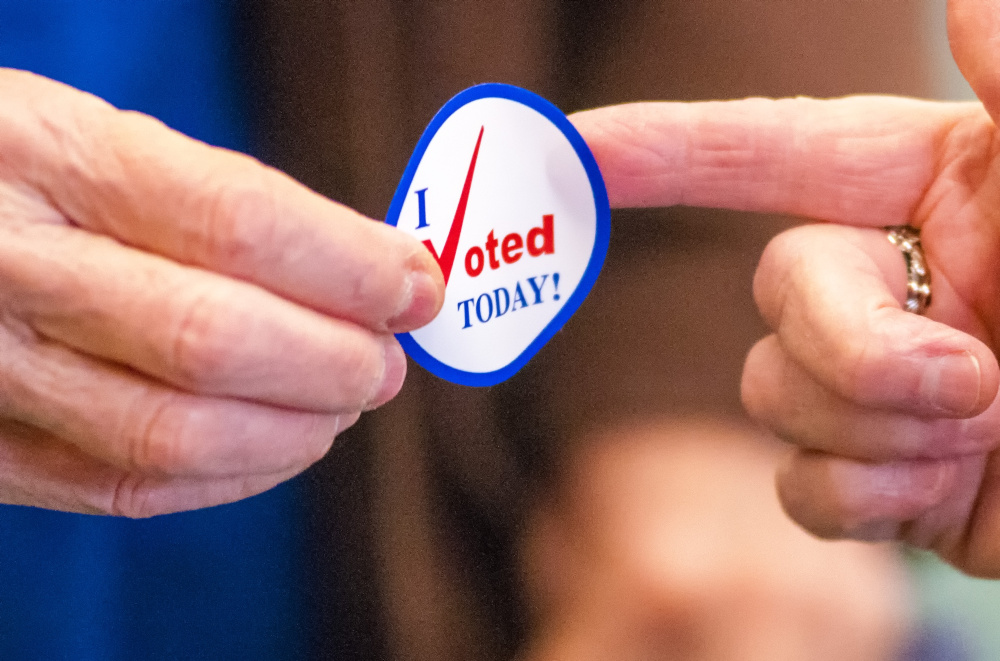
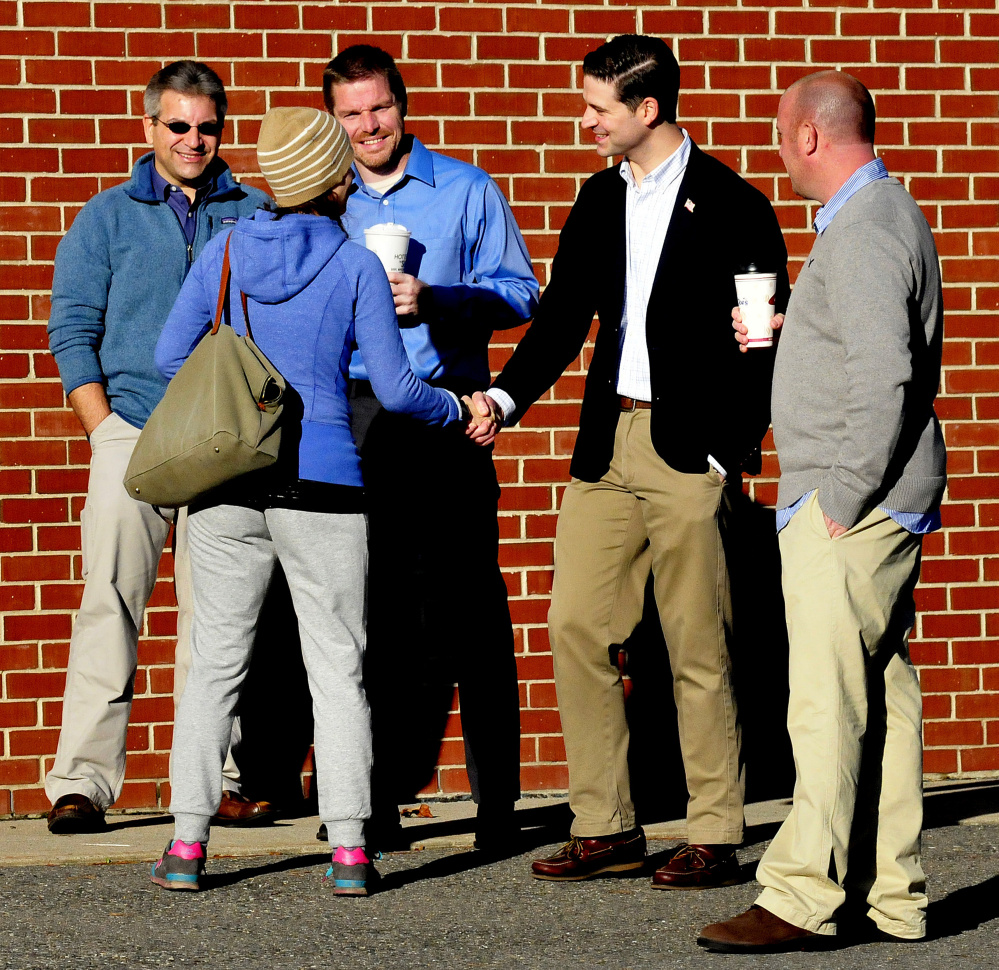
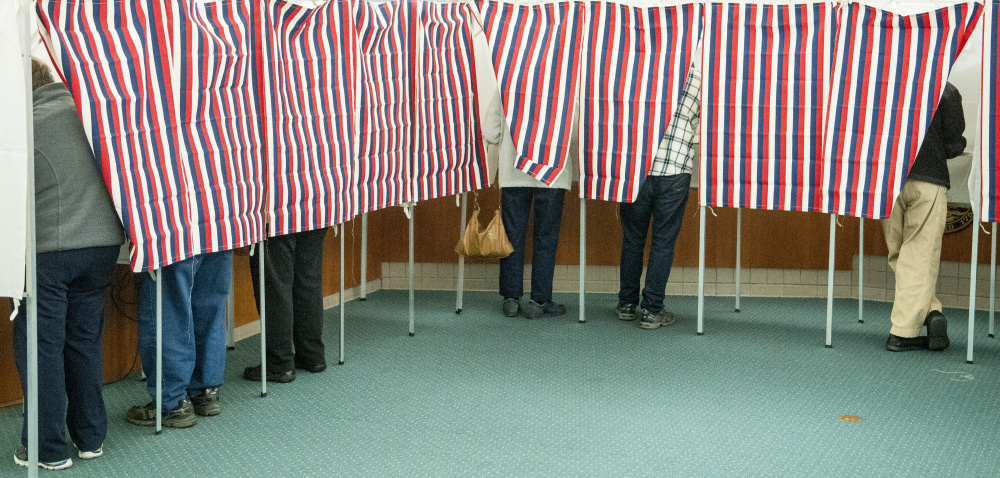
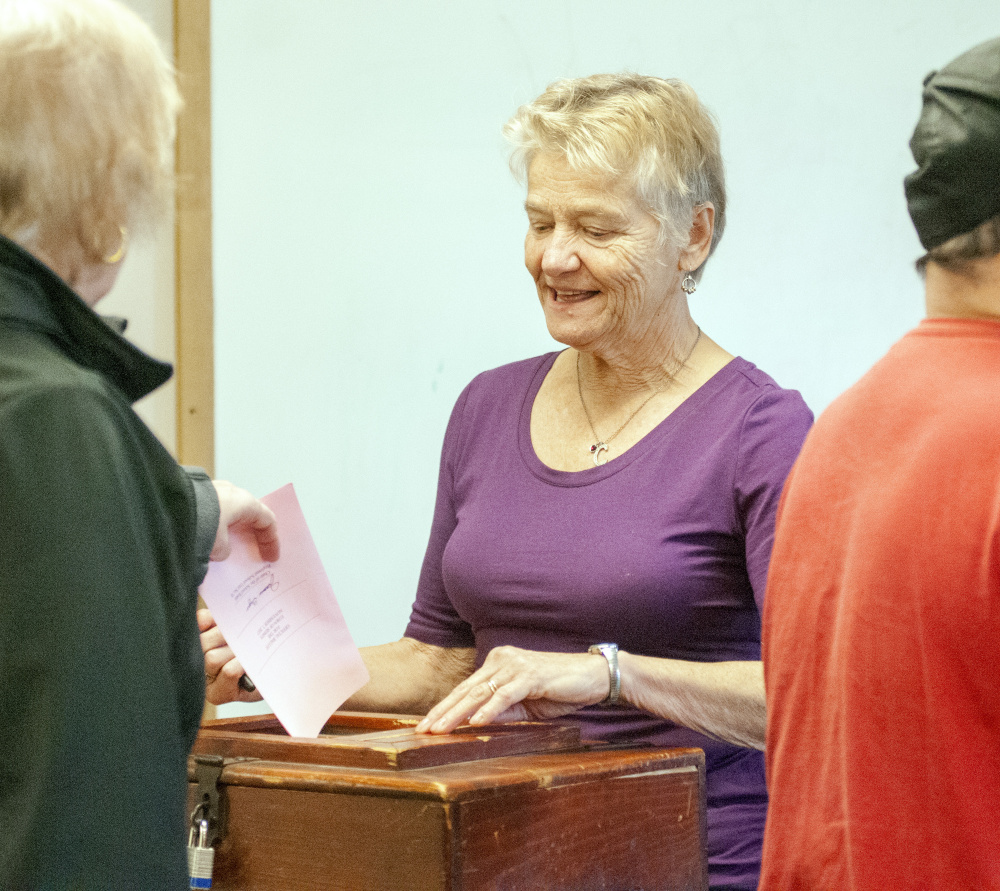
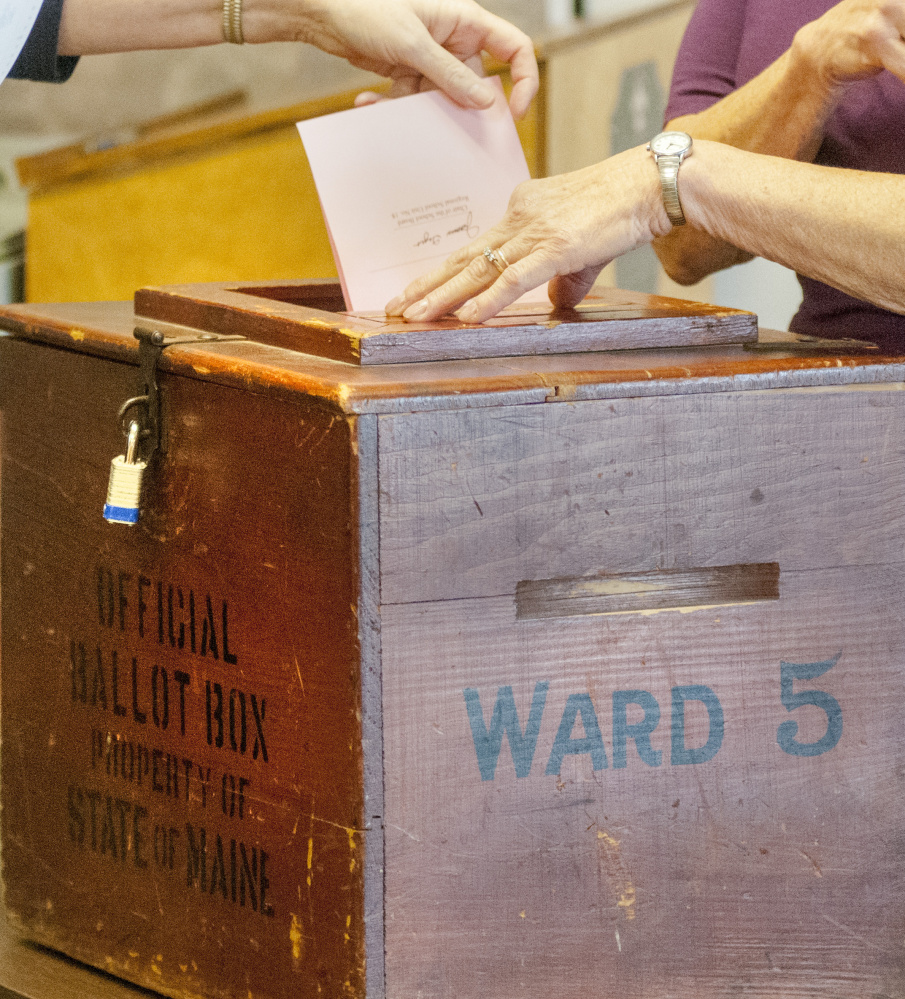
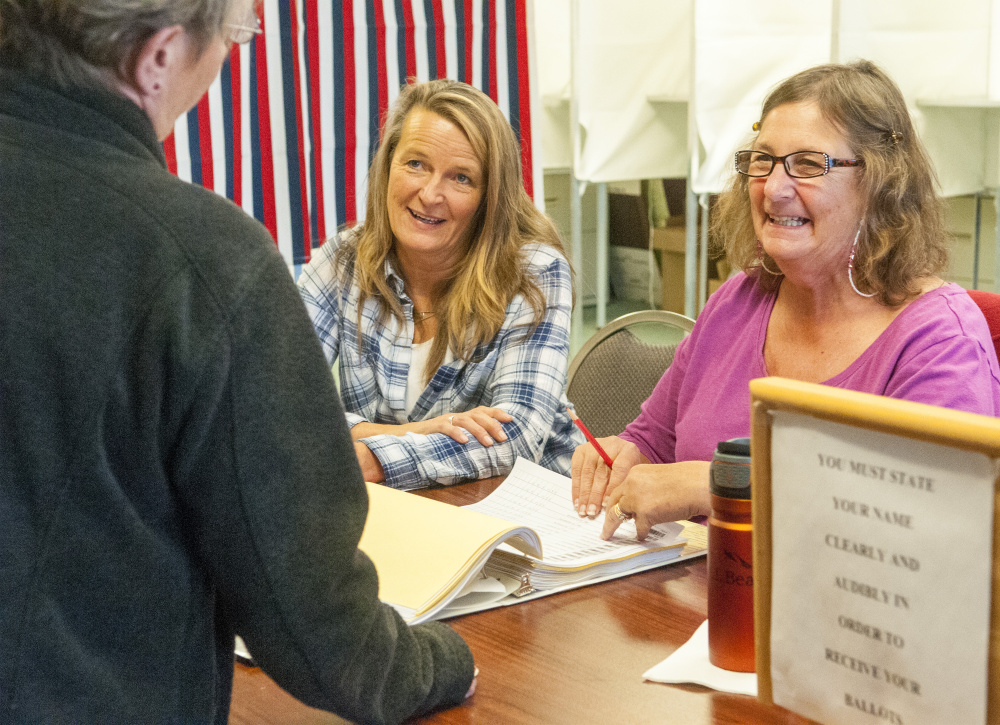
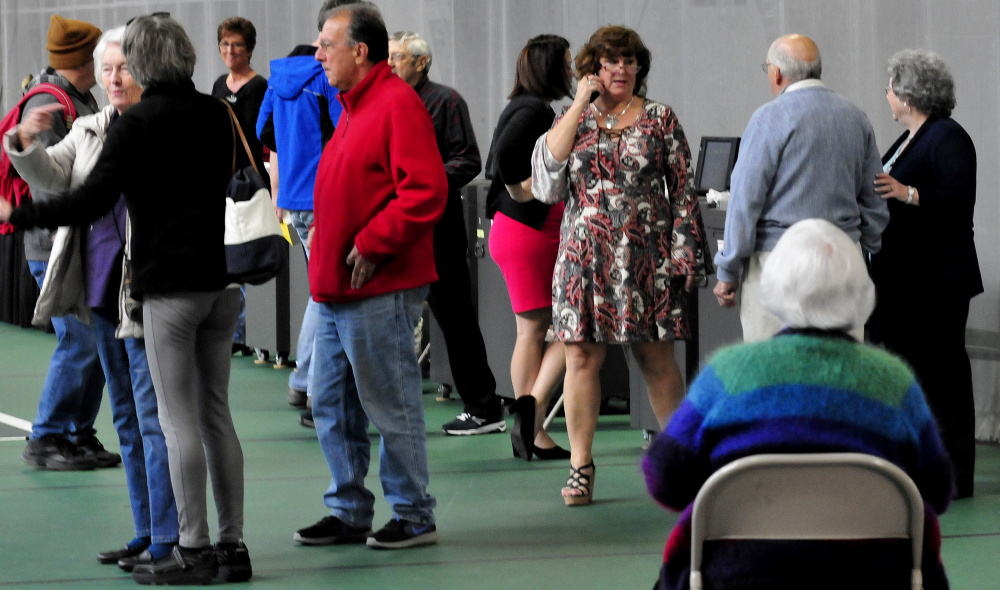
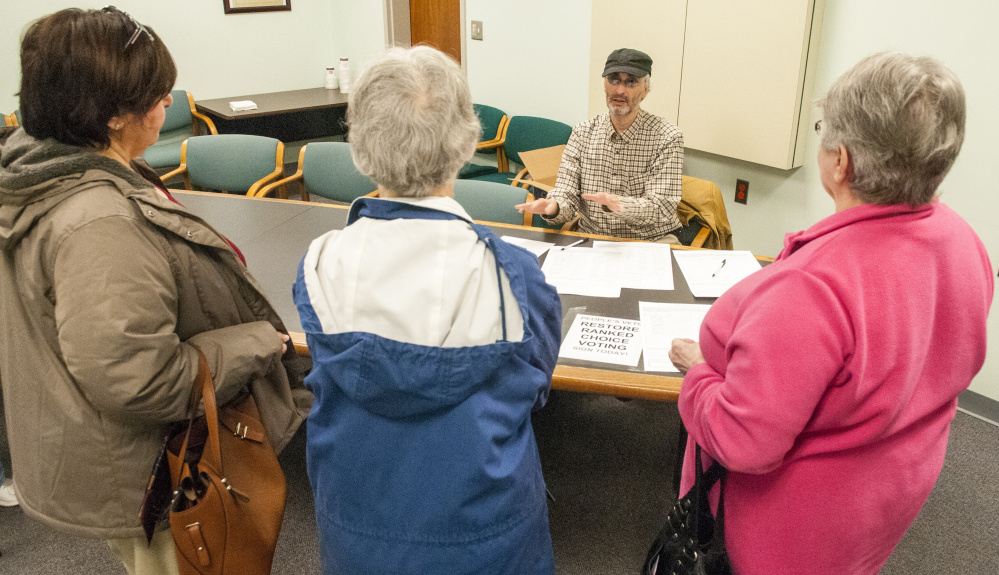
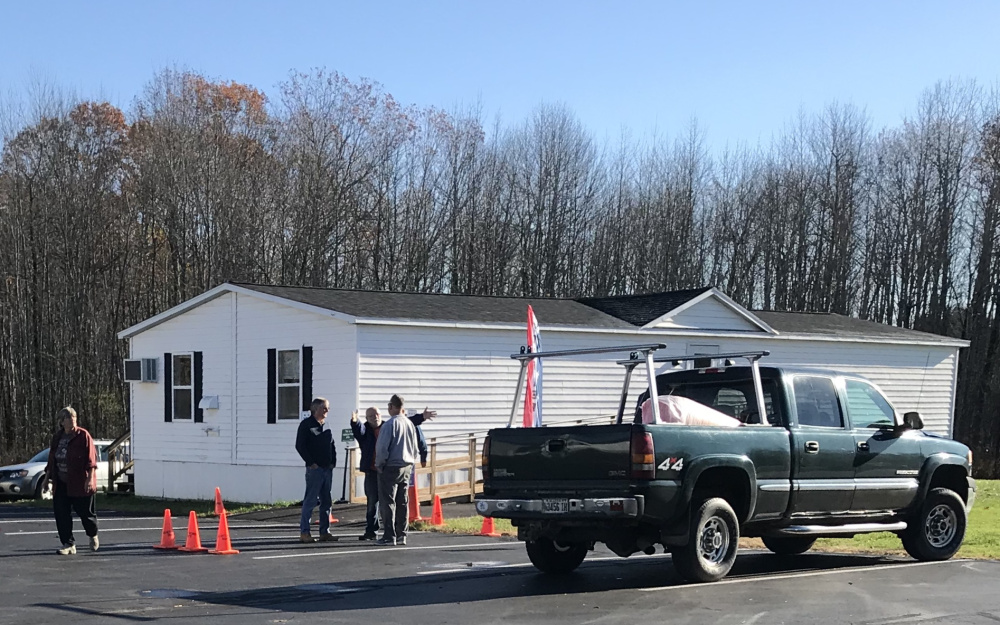
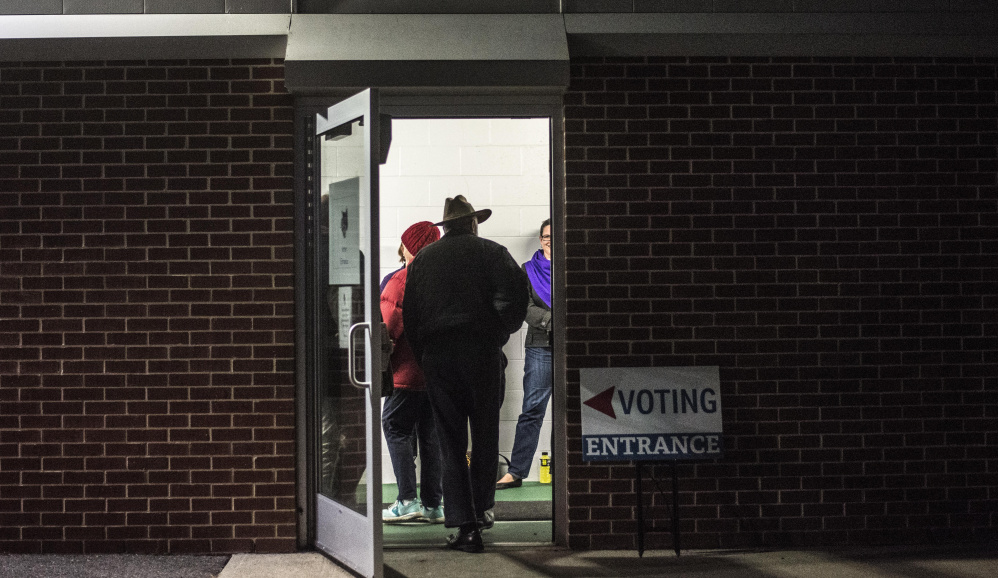
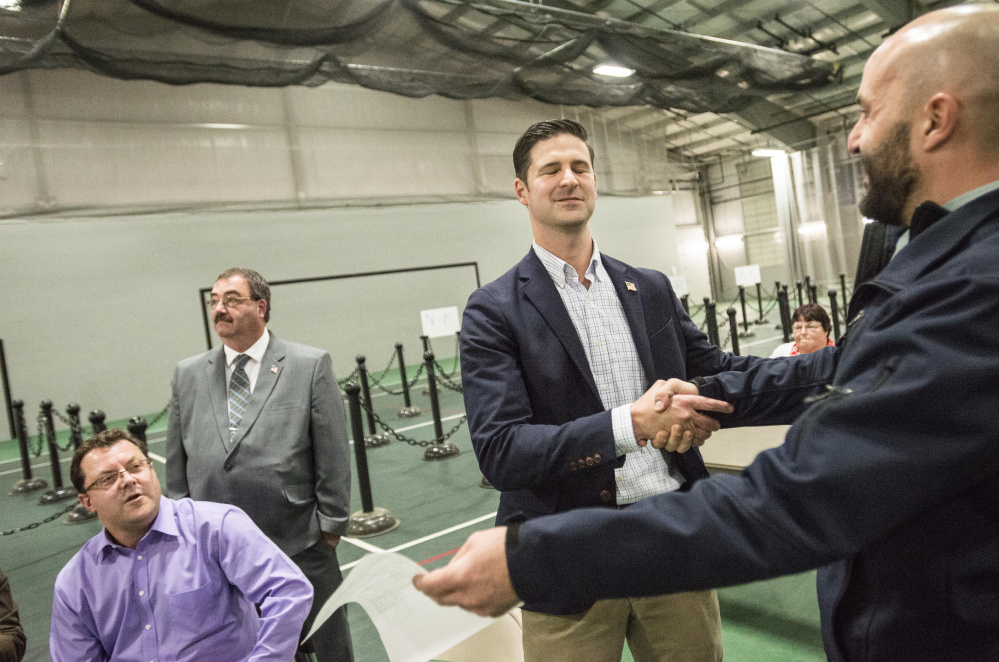
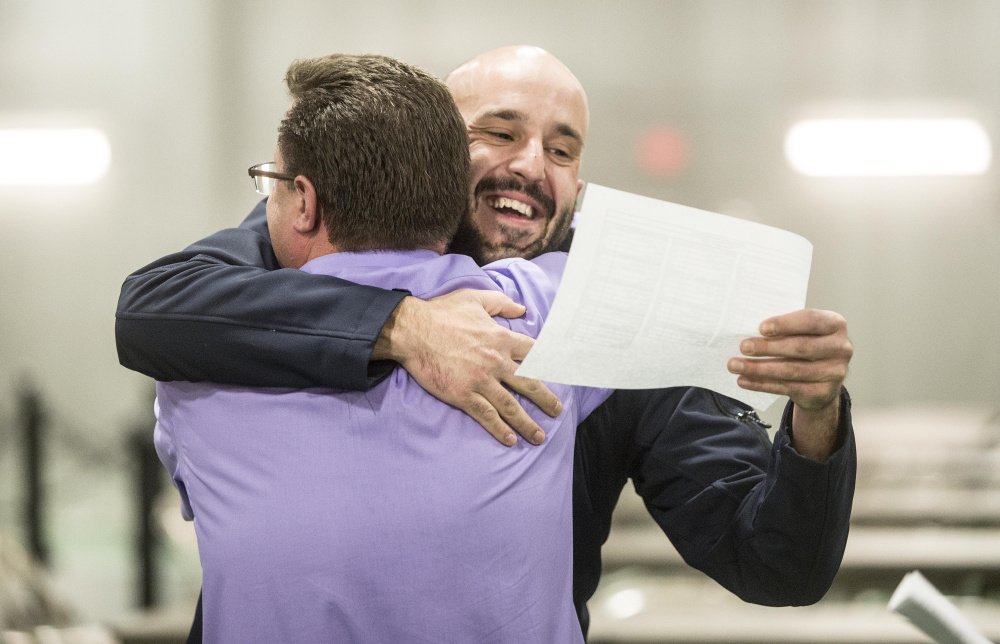
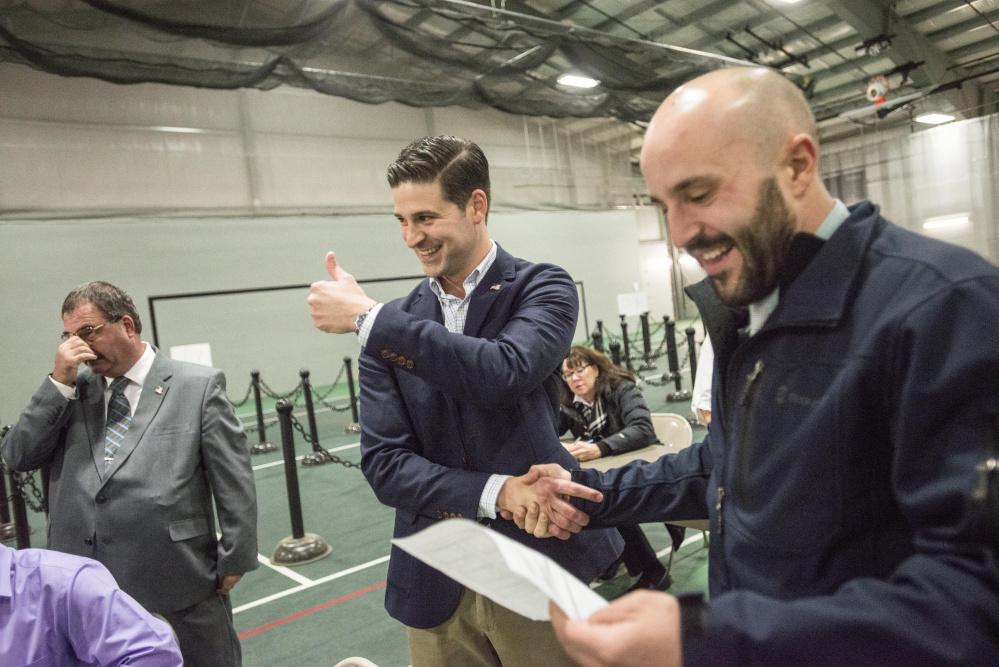


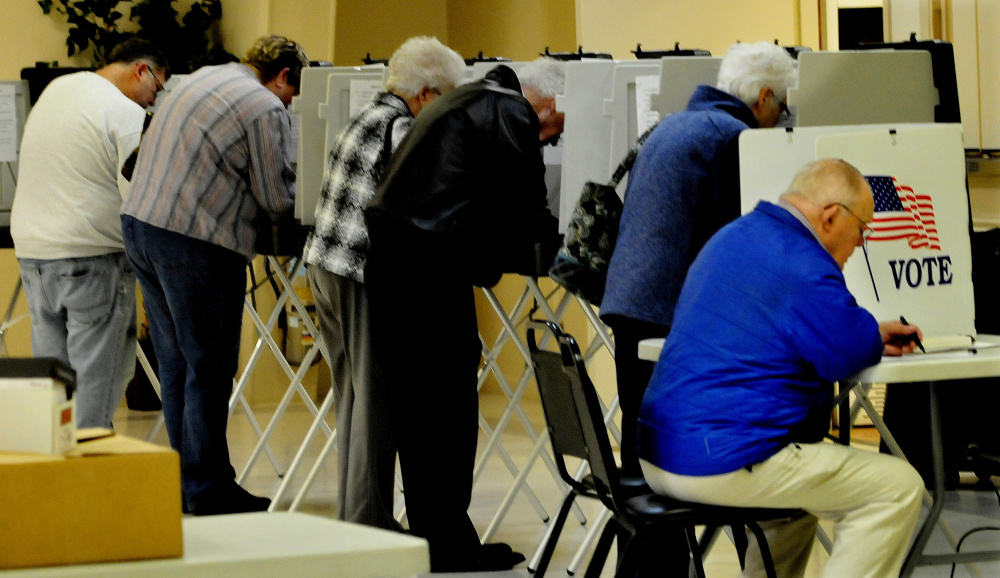


Comments are no longer available on this story